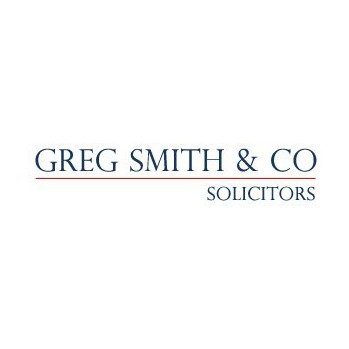Best Real Estate Lawyers in Wynyard
Share your needs with us, get contacted by law firms.
Free. Takes 2 min.
Free Guide to Hiring a Real Estate Lawyer
List of the best lawyers in Wynyard, Australia
Australia Real Estate Legal Questions answered by Lawyers
Browse our 2 legal questions about Real Estate in Australia and read the lawyer answers, or ask your own questions for free.
- Contract law
- Can the previous owner of a business be classed as neglected if he didn't do the maintenance on the referaction units before selling the business to me
-
- Cancel a property contract
- I have cancelled a property contract (after 3 years) and asked for the refund I am entitled to. How long after cancellation should the refund be paid?
-
Lawyer answer by RI & Associates
Could you let me know if the contract was for a property based in Pakistan? If it's in Pakistan, then I can advise on the course of action. Regards, Rana Ahmad
Read full answer
About Real Estate Law in Wynyard, Australia
The real estate law in Wynyard, Australia deals with a variety of issues including property sales and purchases, lease agreements, zoning, land use, home loans, and more. The laws are shaped by both state and national regulations, and they aim to protect parties involved in real estate transactions, regulate property management, and govern land ownership.
Why You May Need a Lawyer
In real estate dealings, often multiple complexities arise that require professional assistance. You might need a real estate lawyer in situations such as understanding complex contract documents, navigating zoning issues, dealing with property disputes, resolving landlord and tenant disagreements, and verifying if there are any liens, easements, or covenants registered against a property. A lawyer can provide assurance that your interests are fully protected.
Local Laws Overview
In Wynyard, Australia, real estate laws adhere to the Australian national property laws and the legislation in the state of Tasmania. The Conveyancing and Law of Property Act 1884 and the Property Agents and Land Transactions Act 2016 are two prominent laws governing real estate. They cover key components like the transfer of land, mortgage registration, leases, land title disputes, and property agent transactions.
Frequently Asked Questions
What does conveyancing mean?
Conveyancing is the legal process of transferring property ownership from the seller to the buyer. This includes preparing documents, conducting searches, and ensuring the property title transfers successfully without legal issues.
What responsibilities do I have as a landlord?
As a landlord, you're responsible for maintaining the property, insuring the property, keeping up with property taxes, complying with safety regulations, and respecting tenant quiet enjoyment of the property.
What rights do I have as a tenant?
As a tenant, you have the right to live in a habitable environment, to have quiet enjoyment of the property, to have your security deposit returned unless there is damage beyond normal wear and tear, and to be informed of any changes to the lease agreement.
Do I need a lawyer for a lease agreement?
While not mandatory, having a lawyer review or draft your lease agreement can help ensure your interests are protected, and that the agreement complies with local and national laws.
Can I back out of a contract to buy a property?
In most cases, you can only back out of a property contract during the cooling-off period without facing serious legal consequences. This period is typically five business days in Tasmania but consult with a lawyer for your specific situation.
Additional Resources
For additional information, you can look towards the Tasmanian Government's official website for public legal education and resources on property laws. When seeking professional advice, you may reach out to the Law Society of Tasmania.
Next Steps
If you require legal assistance in real estate, consider arranging a consultation with a lawyer experienced in real estate law. They can guide you through your specific situation and provide professional services whether you are buying, selling, leasing property or dealing with a dispute.
Lawzana helps you find the best lawyers and law firms in Wynyard through a curated and pre-screened list of qualified legal professionals. Our platform offers rankings and detailed profiles of attorneys and law firms, allowing you to compare based on practice areas, including Real Estate, experience, and client feedback.
Each profile includes a description of the firm's areas of practice, client reviews, team members and partners, year of establishment, spoken languages, office locations, contact information, social media presence, and any published articles or resources. Most firms on our platform speak English and are experienced in both local and international legal matters.
Get a quote from top-rated law firms in Wynyard, Australia — quickly, securely, and without unnecessary hassle.
Disclaimer:
The information provided on this page is for general informational purposes only and does not constitute legal advice. While we strive to ensure the accuracy and relevance of the content, legal information may change over time, and interpretations of the law can vary. You should always consult with a qualified legal professional for advice specific to your situation.
We disclaim all liability for actions taken or not taken based on the content of this page. If you believe any information is incorrect or outdated, please contact us, and we will review and update it where appropriate.
Browse real estate law firms by service in Wynyard, Australia
Wynyard, Australia Attorneys in related practice areas.








